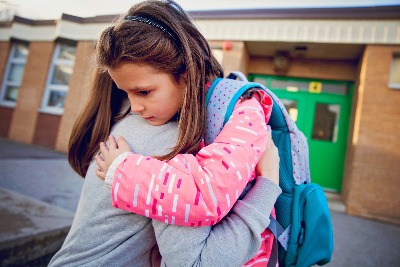 As a parent and therapist, dealing with the multitude of feelings about another school shooting is not easy. One of the hardest things we face as parents is what to say to our children about this horrific violence in schools. Should we even bring it up at all? Should we reassure them that this won’t happen at their school? This is certainly not an easy topic to talk about with anyone, let alone your children. Here are five tips to get you started.
As a parent and therapist, dealing with the multitude of feelings about another school shooting is not easy. One of the hardest things we face as parents is what to say to our children about this horrific violence in schools. Should we even bring it up at all? Should we reassure them that this won’t happen at their school? This is certainly not an easy topic to talk about with anyone, let alone your children. Here are five tips to get you started.
1. Start by asking your child if she heard about the shooting, and if so, how she is feeling about it. Provide empathy for any feeling that your child brings up before reassuring her about safety. If you jump right to reassurance, kids don’t feel like you really heard how they’re feeling or really understand where they’re coming from. In order for kids to continue to share their feelings with you, which is crucial in their mental health, they need to feel like their feelings matter, and that they are valid whether you as a parent feel the same way or not. If your child has not yet heard about the shooting, give them a brief description of what happened, and then ask how they are feeling about it.
2. Answer their questions as best you can with whatever facts have been released at the time. It’s best not to speculate, as some of your speculations could come out as not true, and then your child may not trust you in the future if they feel like you told them something that is not true. It’s okay to tell your child that these are hard questions and no one has all of the answers yet.
3. Provide some reassurance regarding the actual likelihood that this will happen in their school. Even though we know that these shootings have increased in frequency, telling your child that is not helpful unless they bring it up and specifically ask about it. What your child may not understand, is that the chance of this happening in any one school is still very low. They need to know this in order to feel safe to return to school.
4. Encourage your children to come to you anytime they are feeling upset, sad, worried, lonely, etc., and provide empathy when they do. Your child needs to know that he or she can come to you and get empathy and support, rather than you just jumping in to solve the problem or trying to prove how his or her feelings are not true. For instance, if your child comes to you saying he has no friends and feels lonely, and you respond by saying, “sweetie you have lots of friends, like Sally and Chris,” then your child is not going to feel like his feelings are valid, and he is not going to want to come to you with his feelings in the future.
5. If your child wants to know how she can help prevent this from happening at her school, teach her to be kind to others and let an adult know of anyone who is a bully or being bullied. While it’s important for your child to know that she is not responsible for preventing this from happening, everyone can help a little bit just by being kind to others. Help her learn empathy so that she can understand what it might feel like to be left out or have no friends. Ask her how it would feel to have someone come and sit with her if she were sitting alone. These little things can make a big difference in peoples’ lives, and teaching your child kindness and empathy can profoundly impact her own life as well.


